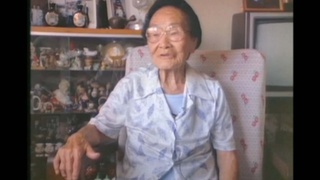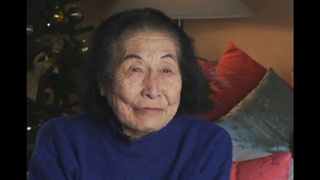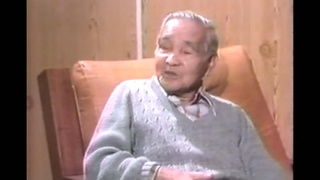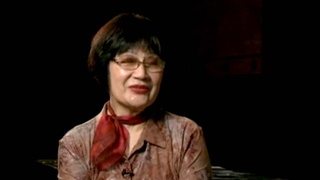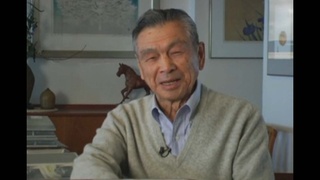Interviews
Sugar-beets farm in Alberta
So I went to Alberta in 1941, and it was a sugar-beets farm in Alberta, and you have to work on the sugar beets, doing sugar beets.
I*: Who ran this farm?
It was owned by hakujin (Caucasion) people, and in the wintertime, we went up to Rocky Mountain, I was, worked in the logging camp in the wintertime, and then come back in the spring and then work on the sugar beets farm all summer. Then in the wintertime, we go to the, up the mountain for logging.
I: And what was it like working on this farm?
It's just, it's hard labor. It's pretty... it's not easy.
I: How many hours a day?
From sunup to sundown.
I: Did you get any breaks?
Yeah, for lunch, well, you worked. There were a lot of sugar beets, two hundred acres there. And in the spring, you have to do, get rid of the weeds and then get ready to get to the fall, when it gets time to dig it up, the machine would dig it up and then you cut the head off and throw that in a pile.
* "I" indicates an interviewer (Mary Ito).
Date: March 23, 2005
Location: Toronto, Canada
Interviewer: Mary Ito
Contributed by: Sedai, the Japanese Canadian Legacy Project, Japanese Canadian Cultural Center

